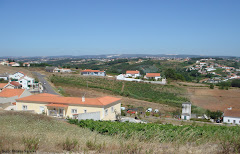Quando? 12 a 15 de Junho
Onde? Frankfurt
Mobility Management – key factor for European development
New challenges for our cities
E-mobility, re-urbanisation, metropolization, cultural and socio-demographic change, economic crisis and constraints
Electric Mobility is one of the main themes at this Conference
Following EU politics and national mainstreams we have to consider that Electric Mobility is one of the most important challenges of changing mobility. We are all aware that there are a lot of challenges for our cities: the central role in a metropolitan region, cultural and demographic change, , the economic crisis which severely strains many city budgets, and to this come the requirements from the EU White Paper, EU targets for climate protection and cleaner vehicles, national contributions to these themes etc. The re-urbanisation brings higher density of land use in cities while at the same time there is still the movement of people to suburban regions in ever larger metropolitan areas. There also seems to be a change of core values, for example there are indications that in many countries, most young people now prefer other status symbols than cars.
How can we use these changes for Mobility Management (MM)? What can MM contribute to (re-)establish living city districts and city centres that offer an attractive lifestyle for all inhabitants?
We cite the EU White Paper 2011: "In cities switching to cleaner transport is facilitated by lower requirements for vehicle range and higher population density. Public transport choices are more widely available, as well as the option of walking and cycling. Cities suffer most from congestion, poor air quality and noise exposure. Urban transport is responsible for about a quarter of CO2 emissions from transport, and 69% of road accidents occur in cities. The gradual phasing out of 'conventionally-fuelled' vehicles from the urban environment is a major contribution to significant reduction of oil dependence, greenhouse gas emissions and local air and noise pollution. It will have to be complemented by the development of appropriate fuelling/charging infrastructure for new vehicles. A higher share of travel by collective transport, combined with minimum service obligations, will allow increasing the density and frequency of service, thereby generating a virtuous circle for public transport modes. Demand management and land-use planning can lower traffic volumes. Facilitating walking and cycling should become an integral part of urban mobility and infrastructure design."
Central topics of the conference
1. E-mobility – New opportunities for Mobility Management!?
2. Mobility management as a regional factor
3. Experiences from Cooperation in European Projects
4. Awareness and Lifestyle – Considerable inputs for Mobility Management?
5. The challenge of socio demographic changes – migrants and an aging population
6. Regeneration of Cities – Contributions of Mobility Management
7. DECOMM 2012 – German mobility management network goes Europe
Subscrever:
Enviar feedback (Atom)













Sem comentários:
Enviar um comentário